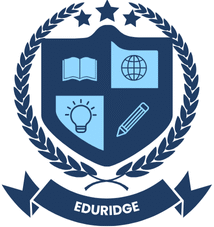Introduction
To begin your academic journey in the USA, you must acquire an F1 student visa.
Important procedures in applying for an F1 visa include the interview at the nearest U.S. embassy or consulate.
The decision as to whether or not you are granted a student visa is heavily dependent on your responses to the interview questions.
To ensure that you are well-prepared for your F1 student visa interview, this book will cover the most commonly asked questions, provide sample answers, and offer practical advice.

What Is an F1 Student Visa?
The F1 visa is a non-immigrant student visa that allows foreign nationals to study in the United States at accredited institutions.
Before you may apply for an F1 visa, you need to be accepted by a U.S. institution that is accredited by the Student and Exchange Visitor Program (SEVP).
After your acceptance, the school will give you a Form I-20. This is the document you’ll need to arrange for your visa appointment and appear for the F1 visa interview.
What Makes an F1 Visa Interview So Crucial?
As a student intending to return home after finishing studies, the F1 visa interview is used by the U.S. consular official to evaluate your eligibility. You need to prove that:
-
You know exactly what you want to accomplish in school.
-
You are well-endowed and can afford to further your education.
-
Your homeland holds a special place in your heart.
-
You intend to return after completing your degree.
Common Questions About F1 Student Visa Interviews
1. Why exactly do you intend to attend college in the US?
This is among the primary questions asked by visa officers.
In your response, be sure to emphasize the high standard of American higher education, the prestige of the school you’ve chosen, and the ways in which enrolling there will help you reach your career goals.
Sample Reply:
In order to launch a prosperous career in computer science, I believe that attending a school in the United States will give me with the best possible education, access to innovative research possibilities, and international perspective. The professors and academic program at the university I’ve chosen are well-known for their expertise.
2. Why did you decide on this particular university?
Give a detailed account of the things that set this university apart. Its courses, professors, labs, internships, and rankings should be highlighted.
Sample Reply:
I decided to attend XYZ University for my Master of Electrical Engineering degree because of its excellent program. The institution has state-of-the-art laboratories and is in the top fifty for my field of study. I have also been quite pleased by Professor Smith’s research and the publications he has published.
3. What are you studying for your degree?
If you want to know what your academic goals are, this questionnaire is for you. Communicate with passion and detail.
Sample Reply:
My academic focus is data science. After finishing college, I hope to use my skills in machine learning and predictive analytics to the field of healthcare IT.
4. Why not return home and finish your degree?
Your own country does have some excellent educational institutions, but you have to acknowledge that the United States offers a more cutting-edge and specialized education in your field.
Sample Reply:
While I am well-versed in the academic offerings at universities in my home country, I am particularly drawn to the United States for its innovative AI programs and world-class research facilities. American colleges and universities offer students unrivaled academic freedom and global perspective.
5. Who is covering the cost of your education?
Tell the truth and be forthright about your funding. You may be asked to present supporting financial documents to support your answer.
Sample Reply:
My parents are covering the costs of my education. Evidence of their financial stability, including tax returns, bank statements, and an affidavit of support, proves that they can afford to cover my educational and living costs.
6. As a sponsor, what is their function?
Give details about your sponsor’s occupation and annual salary. Prove they can afford to pay for your schooling.
Sample Reply:
Dad is a senior civil engineer with ABC Construction Ltd., where he makes around $35,000 a year. One of my mom’s businesses is a retail store. Their combined savings will cover all of my educational and living costs.
7. Is there any American family you’re related to?
Always respond truthfully. Just in case, have a description of your relatives and their house ready.
Sample Reply:
In fact, New Jersey is where my uncle resides. However, I will be living in university-provided housing and will be financially self-sufficient.
8. When you finish school, what are your plans?
Given that the F1 visa is not intended for permanent resident status, this is a crucial issue to ask. Make it clear that you intend to return home once you complete your study.
Sample Reply:
After I finish school, I want to go back to my hometown and get a job in the technology industry. Gaining knowledge and experience in the United States will equip me to make a positive impact in the rapidly growing information technology sector.
9. Have you been able to provide copies of your transcripts and test scores?
Maintain an orderly folder for all of your supporting documents, including your GRE, TOEFL, or IELTS scores, and previous transcripts.
Suggestion:
Get the originals and copies ready for review.
10. Have you had the opportunity to visit the USA?
Be as honest as possible. So, tell them what you’re there for.
Sample Replies:
-
No, the United States is a place I’ve never set foot on.
-
Absolutely! In 2019, I went on a family vacation to America. Our vacation is solely for scholarly purposes.
11. If your visa application is rejected, what steps would you take?
Your determination and backup plan will be tested in this situation. Show your dedication while keeping your cool.
Sample Reply:
In the event that my visa is rejected, I will make every effort to understand the problems and find solutions. I intend to reapply after addressing any concerns, as I am committed to attending XYZ University.
Suggestions for a Successful F1 Visa Interview
1. Dress for Success
First impressions are important. Appropriate business attire will demonstrate your professionalism and regard for the procedure.
2. Be Honest and Confident
Sincerity and self-assurance are powerful tools. Speak clearly; don’t attempt to recite answers you’ve prepared. When talking about money and your plans for the future, be completely forthright.
3. File Your Documents
Put all of the important documents in an organized folder with descriptive labels. Include:
-
Current passport
-
Form I-20
-
DS-160 confirmation page
-
SEVIS payment receipt
-
Visa appointment confirmation
-
Academic records
-
Test results (GRE, TOEFL, IELTS)
-
Financial proof (W-2s, bank statements, sponsorship letters)
4. Be Prepared, Not Memorized
Focus on comprehending their meaning rather than reciting your answers. If you seem too prepared when the visa officer asks you follow-up questions, it could hurt your case.
5. Demonstrate Your Bond with Your Country
Visa officers need evidence that you will go back to the country after finishing school. Highlight your ties to your home country—family, job opportunities, or owned property.
Mistakes to Avoid
-
Saying vague things like “The U.S. is the best” without details.
-
Losing your cool or being disrespectful to the visa officer.
-
Not knowing enough about your school or degree program.
-
Inconsistent or unclear financial documentation.
-
Stating “permanent employment in the US” as your goal on an F1 visa.
Final Thoughts
Ultimately, the F1 student visa interview process need not be intimidating.
With the right knowledge, self-assurance, and practice, you can overcome any challenge.
Maintain your composure, tell the truth, and make it clear that you intend to study in the US and then go back home.
Knowing the typical questions asked during the interview for an F1 student visa and being prepared with thoughtful, sincere answers will significantly improve your chances of getting your visa and beginning your academic career in the US.
